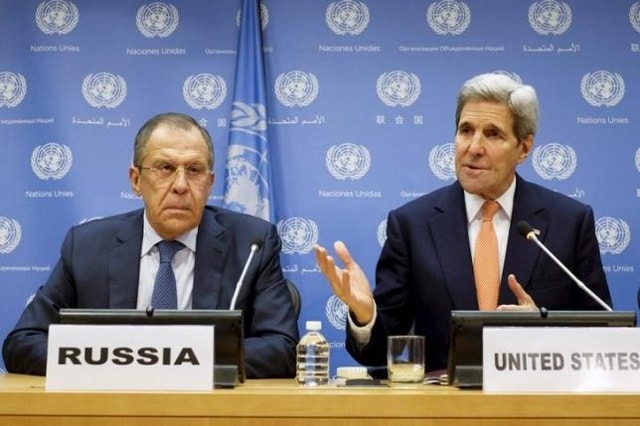Russia - US: Tensions but not yet at the level of 'Cold War II'
(Baonghean.vn) - Reuters recently published a commentary on the current relationship between Russia and the US, analyzing the possibility of a "Second Cold War".
 |
| Russian Foreign Minister Lavrov and his US counterpart John Kerry during a conference at the United Nations Headquarters in New York, USA. Photo: Reuters. |
Accordingly, since the decline in Russia-US relations following Russia's annexation of Crimea, analysts and politicians have mentioned the possibility of a "Second Cold War".
Some of the similarities to the Cold War have been repeated, such as encounters between Russian and American aircraft in the Baltic Sea, the deployment of US armored brigades to Europe, and NATO military exercises near the Russian border. Tensions are clearly escalating, but there are still some key elements missing that will prevent a Cold War from happening.
First, the race between Russia and the United States no longer has the political ideology element it had during the Cold War.
In addition, the economic gap between the two countries has changed significantly. From 1960 to 1975, the Soviet economy grew 58% faster than the US. Today, the US economy is 10 times larger than Russia's, while the Russian economy has been in recession for many years. It can be said that Russia does not have enough economic foundation to ignite the Cold War with the US as before.
Finally, the difference in military capabilities between the two countries is huge. In the past, the Soviet Union had three times as many tanks, anti-tank weapons and artillery as the United States, and twice as many armored vehicles. But today, with $600 billion in defense spending, Washington invests 10 times more in its military than Russia.
It is clear that a Cold War is unlikely today, as Russia has only a fraction of the power the Soviet Union once had. However, conflict is still possible and both sides must work together to prevent it.
First, Washington and Moscow must establish specific agreements between their military forces, similar to the efforts underway in Syria.
Second, the US should avoid any hasty moves that bypass its European allies and clash directly with Russia. This will help prevent the US from splitting with its allies and keep the West on the same page.
Finally, the United States should pursue a sensible foreign policy toward Russia, tough when necessary, but cooperative where possible. The United States should be clear in its words and actions that it will honor its commitments regarding the Baltic Sea. In addition, the United States can seek opportunities to cooperate with Russia by preventing the proliferation of nuclear weapons and sharing intelligence on the Islamic State (IS).
Current tensions between Russia and the United States, while escalating, lack many of the decisive factors that led to the Cold War. With the implementation of progressive policies and a little luck, it is possible to ensure that the period of war will not recur.
Thanh Hien
(According to Reuters)








